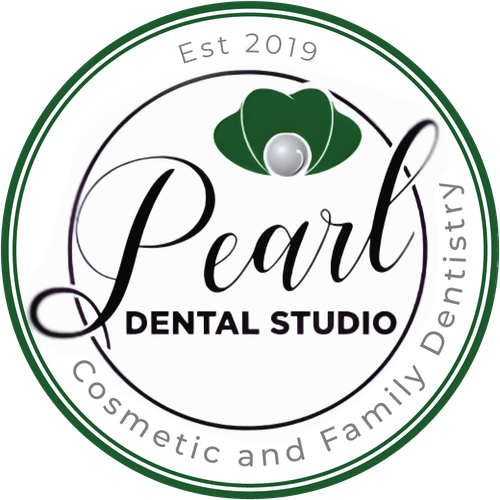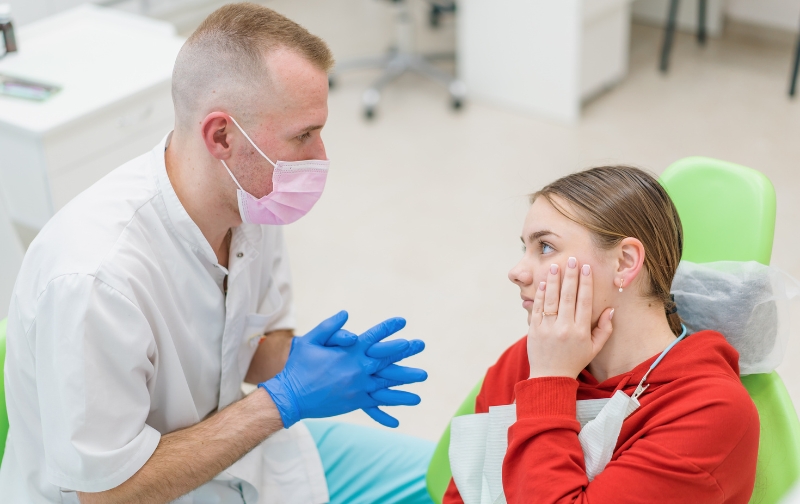117 Batesville Rd Suite 202, Simpsonville, SC 29681

Dental emergencies can strike at the most inconvenient times, often catching you off guard. Whether it’s a sudden toothache or a chipped tooth from a weekend sports game, these situations can cause panic.
But what if you could minimize the chances of these emergencies happening in the first place?
The truth is, with the right preventive measures, you can keep your smile safe and avoid many common dental crises.
Imagine enjoying your favorite foods or engaging in activities without the constant worry of unexpected dental issues. By adopting proactive habits and maintaining good oral hygiene, you not only safeguard your teeth but also enhance your overall well-being.
In this blog, we’ll explore essential tips and strategies to help you avoid dental emergencies. From understanding the signs of potential problems to practicing effective daily care, we’ll empower you to take charge of your oral health.
Let’s dive in and discover how you can enjoy a worry-free smile!
Navigating Common Dental Crises
Dental emergencies can feel overwhelming, often occurring at the most inconvenient times. Understanding these situations can help you stay calm and act quickly. Here’s a look at some typical dental emergencies:
- Toothaches: These can arise from cavities, infections, or gum disease. They often occur suddenly and can vary from mild discomfort to severe pain.
- Fractured Teeth: Accidents during sports or even biting down on something hard can lead to chipped or cracked teeth. This can expose sensitive areas and cause pain.
- Lost Fillings: Fillings can dislodge due to wear or pressure. This exposes the underlying tooth, leading to pain and an increased risk of decay.
Awareness of these common emergencies prepares you to respond effectively. With timely action, you can mitigate damage and discomfort.
Why Do Regular Dental Visits Matter?
Scheduling routine dental check-ups is one of the best ways to prevent emergencies. These visits offer crucial insights into your oral health and can catch issues before they escalate. Here’s why they’re essential:
- Early Detection: Regular check-ups help identify cavities, gum disease, and other concerns early on. Your dentist can address these issues before they develop into emergencies.
- What to Expect: During a check-up, expect a thorough cleaning and examination. Your dentist may take X-rays to uncover hidden problems.
- Preventive Care: Professional cleanings remove plaque and tartar, reducing the risk of decay. Your dentist may recommend treatments like sealants or fluoride applications to protect your teeth.
Regular visits can save you time, money, and pain in the long run. So don’t skip those appointments!
Daily Habits for Lasting Oral Health
Your daily routine plays a crucial role in preventing dental emergencies. By implementing effective oral hygiene practices, you can maintain optimal dental health. Here’s how:
- Brushing and Flossing: Brush twice a day with fluoride toothpaste and floss daily. This helps remove plaque and food particles that cause cavities and gum disease.
- Dietary Impact: Limit sugary snacks and drinks. Instead, opt for fruits, vegetables, and whole grains. These foods support healthy teeth and gums.
- Dental Products: Use an antimicrobial mouthwash to reduce bacteria. Choose a soft-bristled toothbrush to avoid damaging your gums and replace it every three months.
Investing in these habits pays off by keeping your smile bright and reducing the likelihood of emergencies.
Safety First: Protecting Your Smile During Activities
Active lifestyles can put your dental health at risk, especially during sports. Taking preventive measures is essential for protecting your smile. Here’s how to stay safe:
- Mouthguards Matter: Wearing a mouthguard during contact sports prevents injuries. They cushion your teeth and gums from impact.
- Choosing the Right Mouthguard: Look for options that fit comfortably and provide ample protection. Custom mouthguards offer the best fit and protection.
- Additional Safety Tips: Avoid chewing on hard objects like ice or pens. Always practice good sportsmanship to reduce the risk of accidents.
By taking these precautions, you can enjoy your favorite activities without fear of dental emergencies.
Spotting Warning Signs of Dental Issues
Staying vigilant about your oral health helps you catch potential problems before they become serious. Here are key symptoms to watch for:
- Tooth Sensitivity: Increased sensitivity to hot or cold may signal decay or gum issues.
- Swelling and Redness: These can indicate infection or gum disease. Don’t ignore these signs!
- Persistent Pain: Ongoing pain can signify a deeper issue. Seek help from an emergency dentist in Simpsonville if discomfort persists.
If you notice any of these symptoms, consult your dentist promptly. Early intervention can prevent painful emergencies down the road.
Being Prepared: Your Emergency Dental Kit
Having a plan in place for dental emergencies can make all the difference. Creating a dental emergency kit helps you respond effectively. Here’s what to include:
- Essential Items: Include items like gauze, a small container for knocked-out teeth, and pain relievers. Don’t forget your dentist’s contact information!
- Staying Calm: If an emergency occurs, take a deep breath. Assess the situation and remember the steps to take.
- Finding Help: Know where to locate an emergency dentist. Research local options in advance to ensure quick access to care.
Staying proactive about your dental health can make all the difference in preventing emergencies. By adopting effective daily habits, attending regular check-ups, and being prepared for potential crises, you can safeguard your smile. Remember, when in doubt, reach out to a professional—especially an emergency dentist in Simpsonville—who can guide you through any unexpected situations. Prioritize your oral care today to ensure a healthier tomorrow, and keep your smile shining bright!






